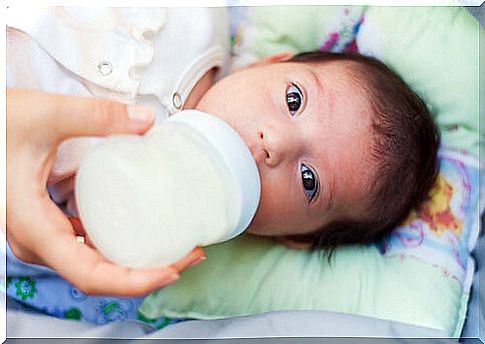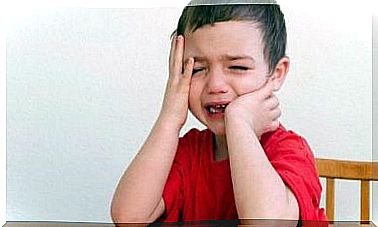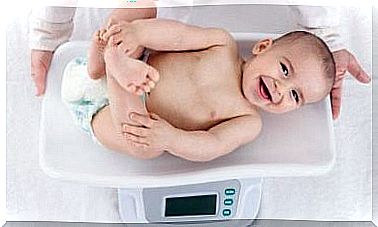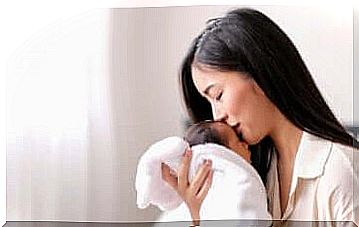What To Do To Prevent The Baby From Regurgitating? – Being Parents
The baby’s regurgitation is very frequent during its first months of life. They usually occur after they have eaten, in about 40% of healthy babies. The fluid released during regurgitation usually contains only a small amount of milk. It is mainly composed of saliva and gastric juice.
The vast majority of babies will no longer have this problem when they are 12 months old. And in some cases, it even happens before. In addition, regurgitation will have no effect on their growth and development.
However, a minority of babies regurgitate so much that it can influence their growth. For this reason, the babies spit up frequently should also be weighed regularly.
Regurgitation is not due to an allergy or food intolerance. They are very common in babies and do not require additional treatment, even when they seem to be abundant.
However, we can give you some advice on how to avoid regurgitation of the baby. Read on to find out more.
The causes of baby regurgitation
In babies, regurgitation has two main causes. First, there is the immaturity of the baby’s digestive system. In addition, his diet is exclusively based on liquids. However, the regurgitation can also be due to other reasons. In fact, it is a practically inevitable phenomenon in young children.
The main cause of regurgitation is poor coordination of the esophagus. That is, the organ that allows food to get to the stomach. The latter’s mission is to store and disinfect food. Then it is supposed to send them in portions to the small intestine.
Normally, this activity is perfectly regulated by the cardia, a ring-shaped muscle, which is located at the point of passage between the stomach and the esophagus. When it contracts, the cardia prevents food from coming back to the mouth.
In babies, however, this muscle does not always work well. As a result, the esophagus may remain partially open and allow swallowed milk to return to the mouth.
The problem of regurgitation resolves spontaneously when the cardia can contract perfectly. At this point, it can push the food into the stomach and then close itself.

What to do to prevent the baby from regurgitating?
Sometimes the baby spits up more than usual. It happens more often when it is bottle-fed. Follow these tips to prevent this from happening:
- After eating, the baby must burp to expel the air that he swallowed during breastfeeding.
- Avoid giving her large amounts of milk each time. You might overfill his stomach.
- Take breaks during the meal to allow him to burp.
- Make sure you are using the correct nipple and that the milk flow is correct.
- Breastfeed the baby before he is very hungry. This will prevent him from swallowing large amounts of air.
- If you bottle-feed the baby, you can add thickening substances to the milk to make it less liquid. This will limit regurgitation.
- Introducing solid foods at weaning generally reduces the incidence of regurgitation.
- You can try anti-reflux milk or dilute a thickener in her regular milk.
- At the onset of digestion, avoid moving the baby too much and playing with him.
- It is better not to give the child fruit juice. Indeed, their acidity can cause gastric reflux.
“The vast majority of babies will no longer suffer from regurgitation by the age of 12 months.”
When should you be worried?
In most cases, you shouldn’t be overly alarmed. However, some symptoms are worth taking into account:
- The baby is having trouble growing.
- He cries a lot between meals.
- The baby is not sleeping well.
- He suffers from infections.
- Regurgitation is frequent and accompanied by diarrhea.
- The baby has a fever.
- There are traces of blood in his regurgitation.

How to distinguish regurgitation from vomiting?
Unlike regurgitation, the vomiting is characterized by a forceful expulsion of stomach contents. It is important to know the difference between vomiting and regurgitation. Vomiting can signal more serious illness. In addition, they can cause dehydration if they are repeated.
In general, occasional vomiting should not be of concern if no other symptoms are present.
This list of tips for preventing baby regurgitation can be very helpful if your baby has this problem. As a parent, you should keep in mind that if the child regurgitates large amounts of milk, or the regurgitation comes back violently, it is better to take him to the pediatrician.









